Looking back at three City Hall storylines from 2024
Hey everyone, Ink Link News Assistant Editor Andrew Sylvia here. As 2024 comes to a close, I browsed through the nearly 500 articles I wrote or edited about stories here in Manchester over the past 12 months and a few common themes arose. Here’s a look back at some of those ongoing narratives that c
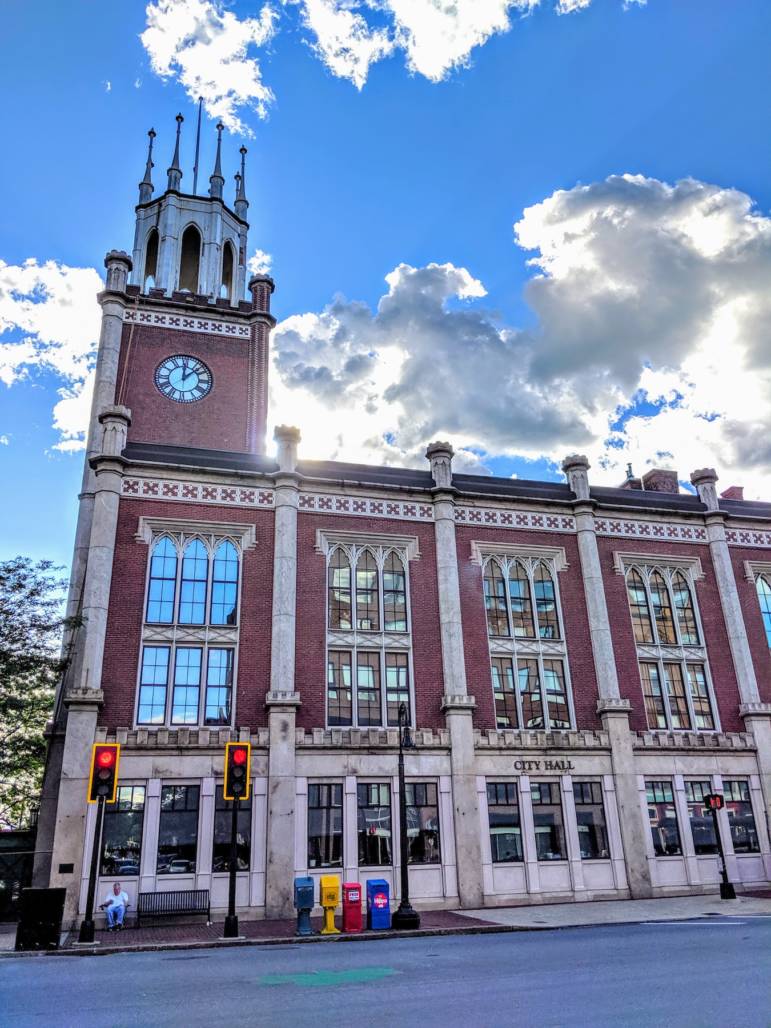
Hey everyone, Ink Link News Assistant Editor Andrew Sylvia here. As 2024 comes to a close, I browsed through the nearly 500 articles I wrote or edited about stories here in Manchester over the past 12 months and a few common themes arose. Here’s a look back at some of those ongoing narratives that continued over the course of several stories in the past year.

The First Year of Mayor Jay Ruais
Last November, Jay Ruais defeated Kevin Cavanaugh to replace outgoing Manchester Mayor Joyce Craig.
On the campaign trail, Ruais stressed that he would seek a consensus-based administration and he repeated that pledge during his inaugural address and throughout the year, meeting with other New Hampshire mayors to discuss ideas.
His key state-level advocacy priority was urging legislators to fix the personal recognizance bail system, reforms initially meant to help indigent people arrested for low-level crimes that instead allowed many serial offenders back onto the streets shortly after arrest.
Ruais held a press conference almost immediately after he started on the job, providing more press conferences throughout the year and later praising legislators for action on the issue.
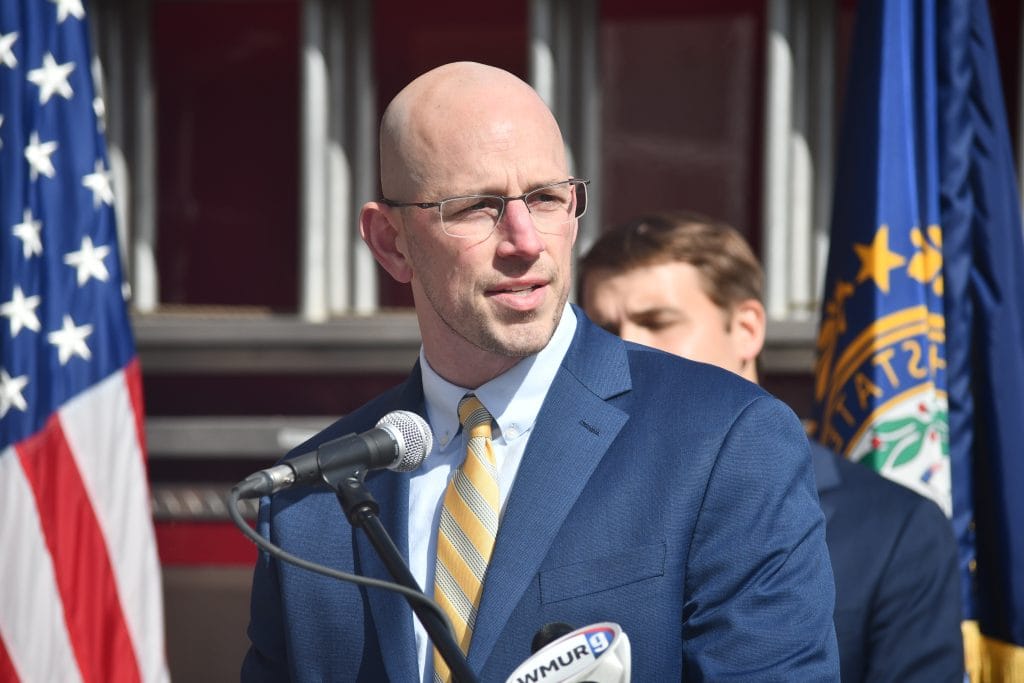
Another issue tackled early on was dealing with unruly protesters asking the Board of Mayor and Aldermen to support a Gaza cease-fire resolution. At one point the protesters shut down an Aldermanic meeting, leading to a limited ban on displaying banners during meetings which was eventually extended to signage. The protests also led to non-staff members being banned from the mezzanine in the Aldermanic Chambers, and eventually staff members wouldn’t always have to be up there either as he helped advance a rule only requiring city department heads to attend meetings if they’re on the agenda.
A series of various budgetary challenges met the mayor as the city’s government began to see the last economic impacts of the COVID-19 pandemic. A deeply divided board and time constraints required Ruais to initially veto the Fiscal Year 2025 budget he presented to the Board of Mayor and Aldermen, with it later approved a few weeks later.
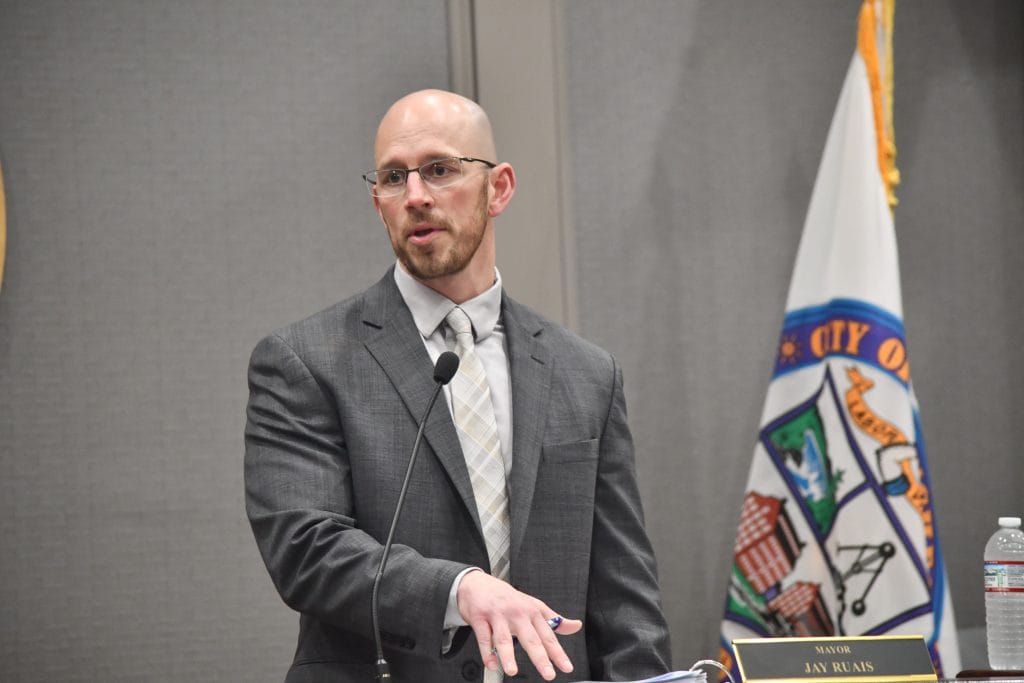
Perhaps the biggest focus for Ruais was the issue of addressing homelessness and housing stability in the city. Following the removal of former Department of Housing Stability Director Adrienne Beloin, Ruais brought the department she led under the umbrella of the mayor’s office and announced the hiring of two new employees focused on the city’s homeless initiatives.
Probably the best known of Ruais’ impacts on the state of homelessness in the city was leading a modification of the city’s anti-camping ordinance following a U.S. Supreme Court ruling that would now give the ordinance enforceability and allow police to remove homeless people sleeping in city parks at their discretion.
However, that was not the only thing Ruais did linked to the issue of homelessness and housing over 2024. In the fall, he pledged to end veteran homelessness by the end of his term. He announced new weekly support events at the Beech Street Engagement Center, and organized an auction of surplus properties owned by the city to help grow the city’s affordable housing trust.
Another hallmark of Ruais’ first year was attempts to share communication with the city. In addition to the annual State of the City address, at Aldermanic meetings, and meetings in each ward of the city: beginning with Ward 1, followed by Ward 11, Ward 3, Ward 9, Ward 7, Ward 12, Ward 10, Ward 8, Ward 6, Ward 5, Ward 4 and Ward 2.
Manchester’s proposed zoning ordinance update
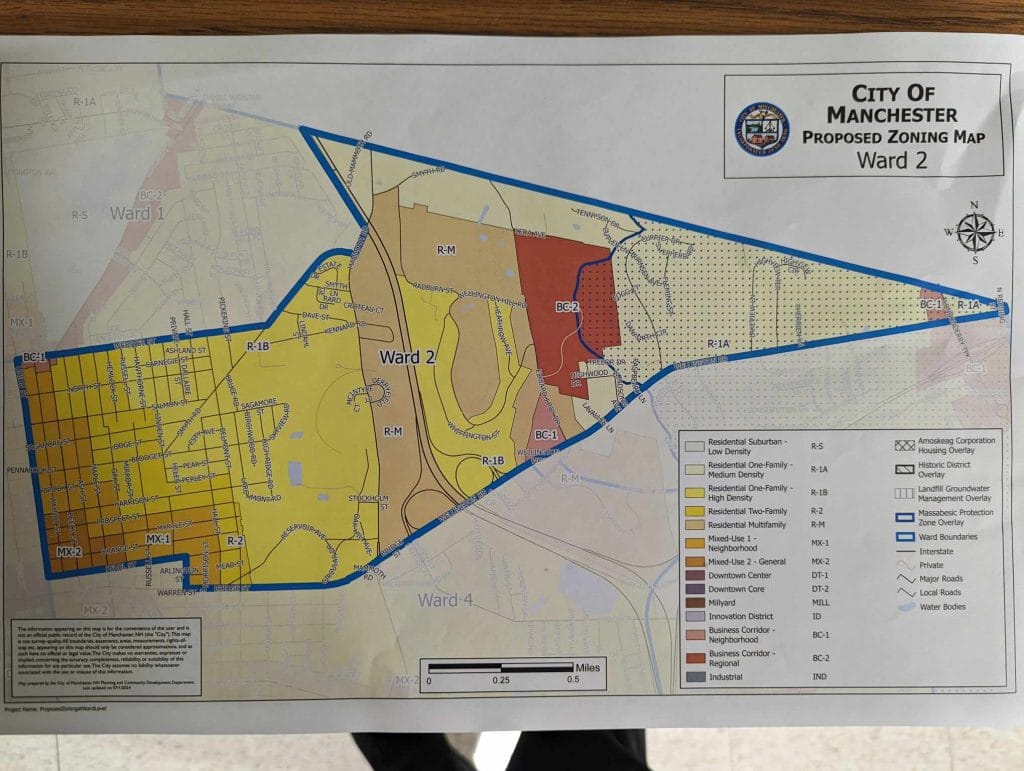
Just as the mayor held a meeting with residents in each ward, the City of Manchester’s Department of Planning and Community Development also held a series of meetings throughout the city to provide information and get feedback on the city’s proposed zoning ordinance change and new zoning map, aiming to create the city’s fourth-ever set of zoning ordinances.
The series began in Ward 12, followed by meetings in Ward 10, Ward 8, Ward 11, Ward 1, Ward 7, Ward 6, Ward 5, Ward 4, Ward 2, Ward 9 and Ward 3.
There was also a booth about the proposed new ordinances at Taco Tour as well as an event with the Chamber of Commerce.
The zoning updates had been in the development stages since before the beginning of the year, and ultimately seeks to help address housing shortages by encouraging more density in the city, particularly in the city’s center. The updates also sought to preserve the character of lower density neighborhoods by not mandating changes in some part of the city that could bring more housing density. There was also a push for simplification of the code by removing superfluous types of zones and requirements while also providing far more images to help those unfamiliar with zoning get a better grasp on the city’s zoning requirements.
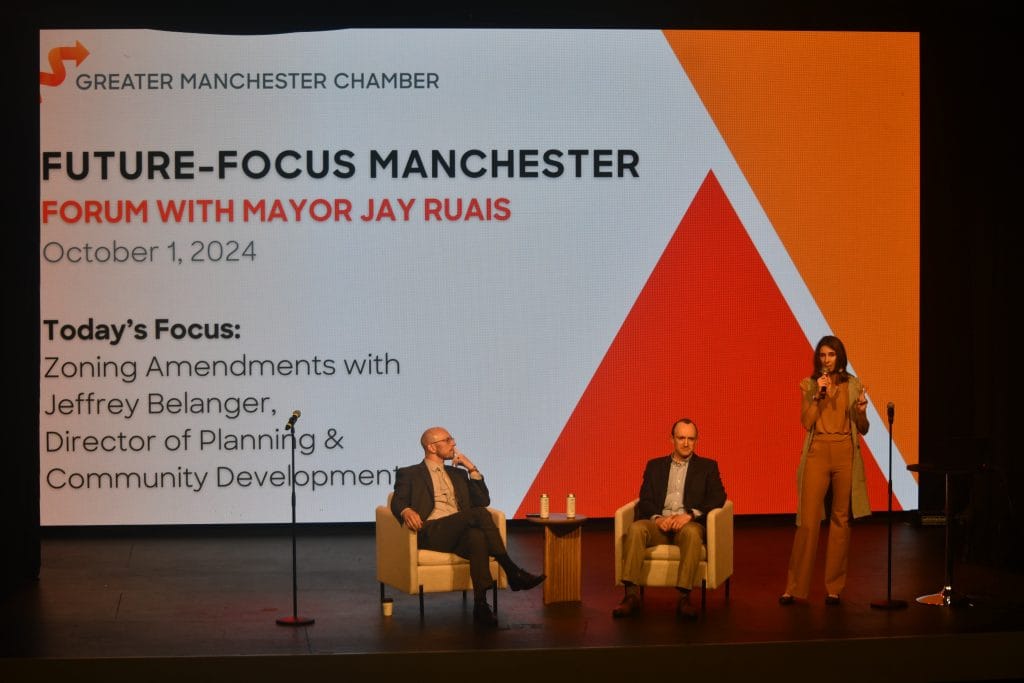
At the Ward 8 meeting there was concern about a proposed development near South Mammoth Road that could be allowed by right upon passage of the ordinance rewrite. However, that proposed development gained a variance from the Zoning Board of Adjustment this year, in advance of the rewrite’s final passage.
The feedback is now before a steering committee, with final decision on the changes by the Board of Mayor and Aldermen assumed to be coming soon.
The Manchester School District Facilities Plan
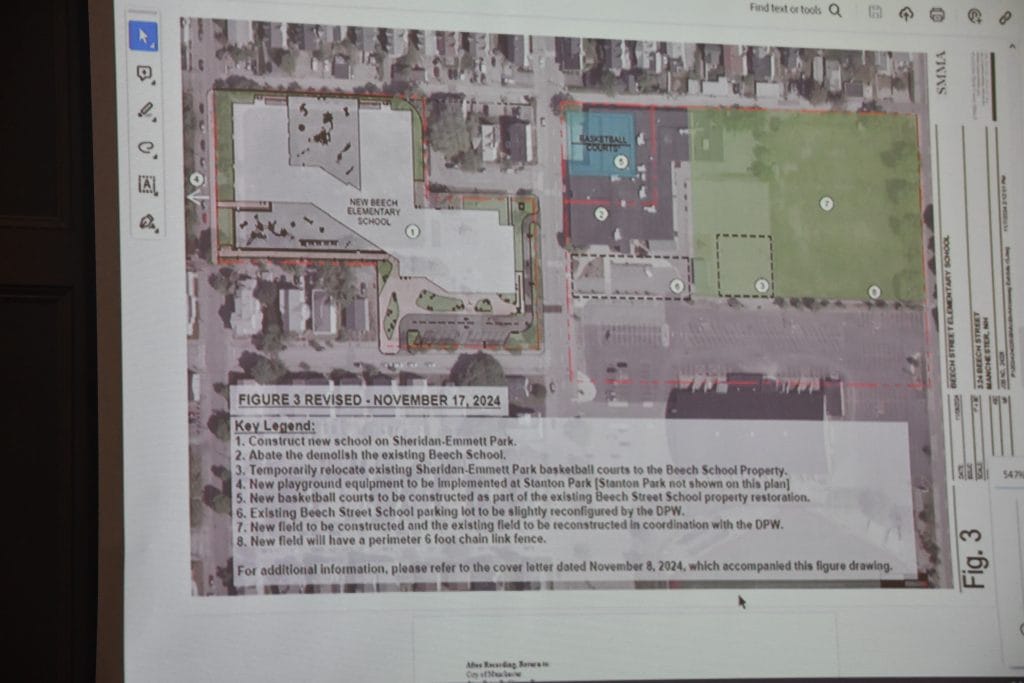
Another ongoing topic was the Manchester School District’s facilities plan, which seeks to upgrade the district’s aging infrastructure.
The plan began prior to the beginning of this year, as Manchester School District Superintendent Dr. Jenn Chmiel (then Dr. Jenn Gillis) announced that the district would seek to renovate or reconstruct most, if not all of the district’s facilities and establish a new set of three high schools, four middle schools and 12 elementary schools.
Bonding for Phase One (now Priority One) of the plan was approved shortly before 2024, with funding going to finalize fifth-grade transition into the city’s middle schools, create plans for the three high schools and construct an entirely new Beech Street Elementary School, which would include students from the current Beech Street Elementary and the closing Henry Wilson Elementary School. Wilson students would temporarily be split between Beech Street and McDonough Elementary, later just at Beech Street.
As the new Beech Street Elementary was proposed across the street at its current location inside of Sheridan-Emmett Park, the Board of Mayor and Aldermen would be required to approve the transfer of the land given its current park usage. In return, the city would get the land on the current location of Beech Street Elementary once the new school was completed.
However, with a new Board of Mayor and Aldermen taking over in January, a “pause” was requested to obtain more information.
Eventually plans to move forward on Beech Street were “unpaused” and negotiations began with the Amoskeag Trust, which had gifted the land to the city under certain uses.
Aldermanic subcommittees heard the land-swap proposal this fall and the Board of School Committee heard options on the configuration of the new school. Another “pause” was requested by the Aldermen after feelings of uncertainty on the school as well as rumors about other parts of the facilities plan, leading to condemnation from the Board of School Committee.
No reconsideration to the pause was made in December by the Aldermen and “Priority Two” of the facilities plan was revealed in December as well, although it remains unclear what will come next with Beech Street or Priority Two as 2024 comes to a close.





